Discover in depth the 10 meta-cognitive principles higher math folks use to absorb math quickly, overcome intellectual plateaus while having a great time.
Most guides on mathematical learning are either too shallow, too narrow or too K-12, so we decided to create a better one instead.
So here's what happened...
As a tutoring agency covering the juncture between lower and higher mathematics, we often cater to a wide range of students with various levels and backgrounds in mathematics.
But because of that, there's also a troubling trend which we can't help but notice...
Namely,
We observed that the vast majority of students really aren't well prepared to tackle mathematics beyond the K-12 level at all!
For example, they would:
But then, that's when we had a déjà vu,
because there was a time where we were just like them as well:
For example, we would:
So, what is it that we and many others were missing?
But you may ask, "how could that be!?" After all, most of us have at least 10 years of math under our belt by the time we finish high school.
But here's the thing...
"Our system — here in North America at least — is primarily set up to teach the most miniaturized form of mathematics, aiming for almost the lowest common denominator."
So no wonder why our society has become so mathematically fragile — with most of us having little clue as how to tackle mathematics except the simplest.
Or to put it more bluntly, we're living in the "mathematical matrix", without realizing that we're being mathematically domesticated as we speak.
And because of that, our team decided to embark on a journey — to be on the lookout for a guide that would solve that problem.
We also started to reminisce extensively on our own experience, and to do some research around the topic pretty much right away.

However. as we delve deeper into the researching process,
We also realized that there is actually not a lot of resources when it comes to higher mathematical learning!
Instead, what we did find are stuffs such as:
Essentially, we weren't able to find a guide on math learning that is:
So, we decided to do the obvious thing...
— which is to write the guide ourselves.
And then, after 5 months of:
We finally managed to compile our research and experience into a guide similar to the one described above...

— where we reveal 10 powerful, rarely-elaborated principles on higher mathematical learning.
Introducing...
The Definitive Guide to Learning Higher Mathematics
— 10 Principles to Mathematical Transcendence
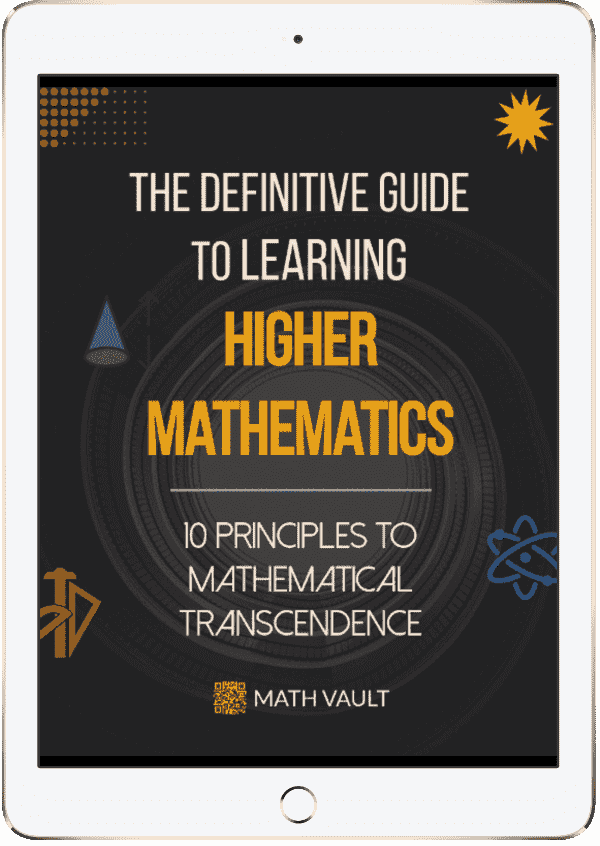
So just what kind of principles and concepts are we talking about?
Well, here's the table of contents for the record:
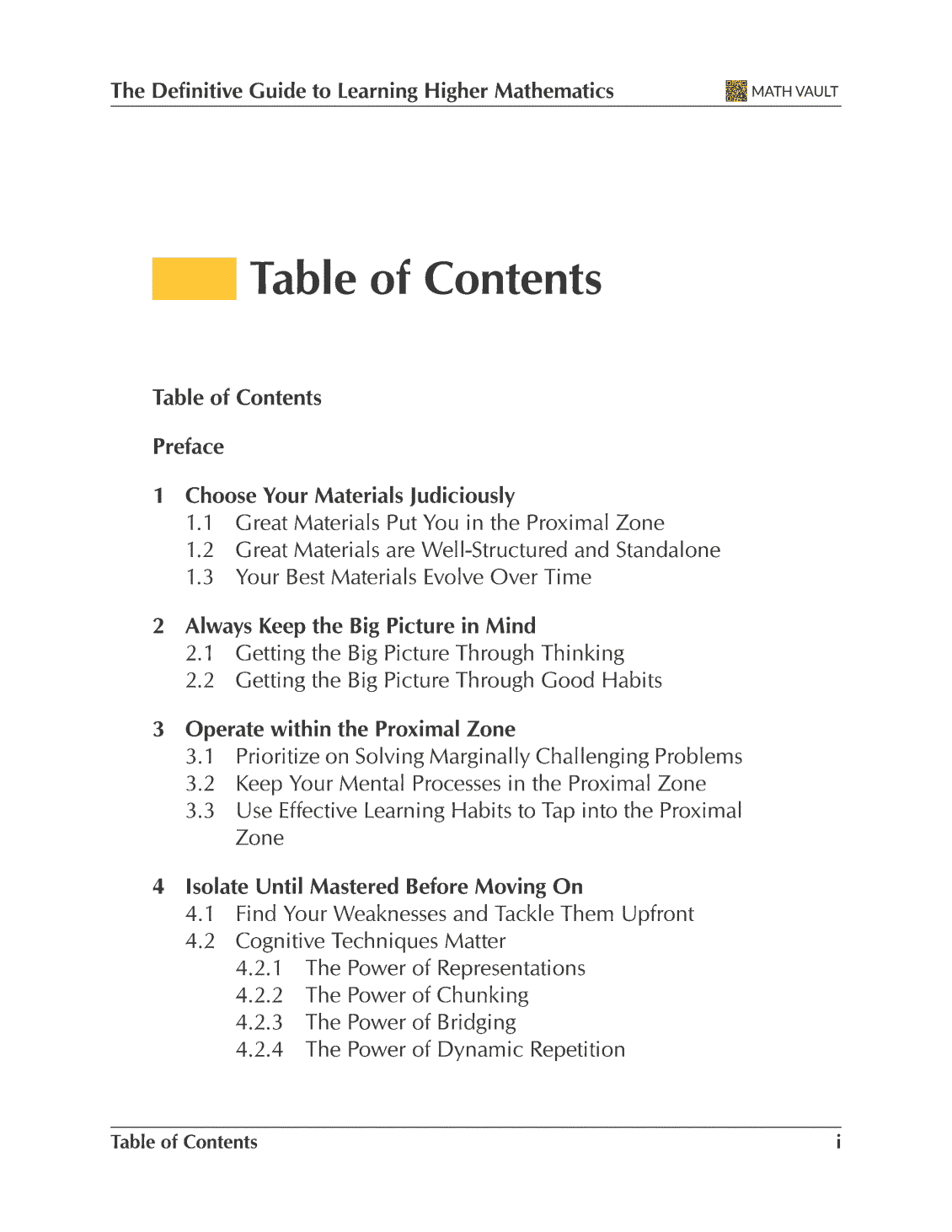
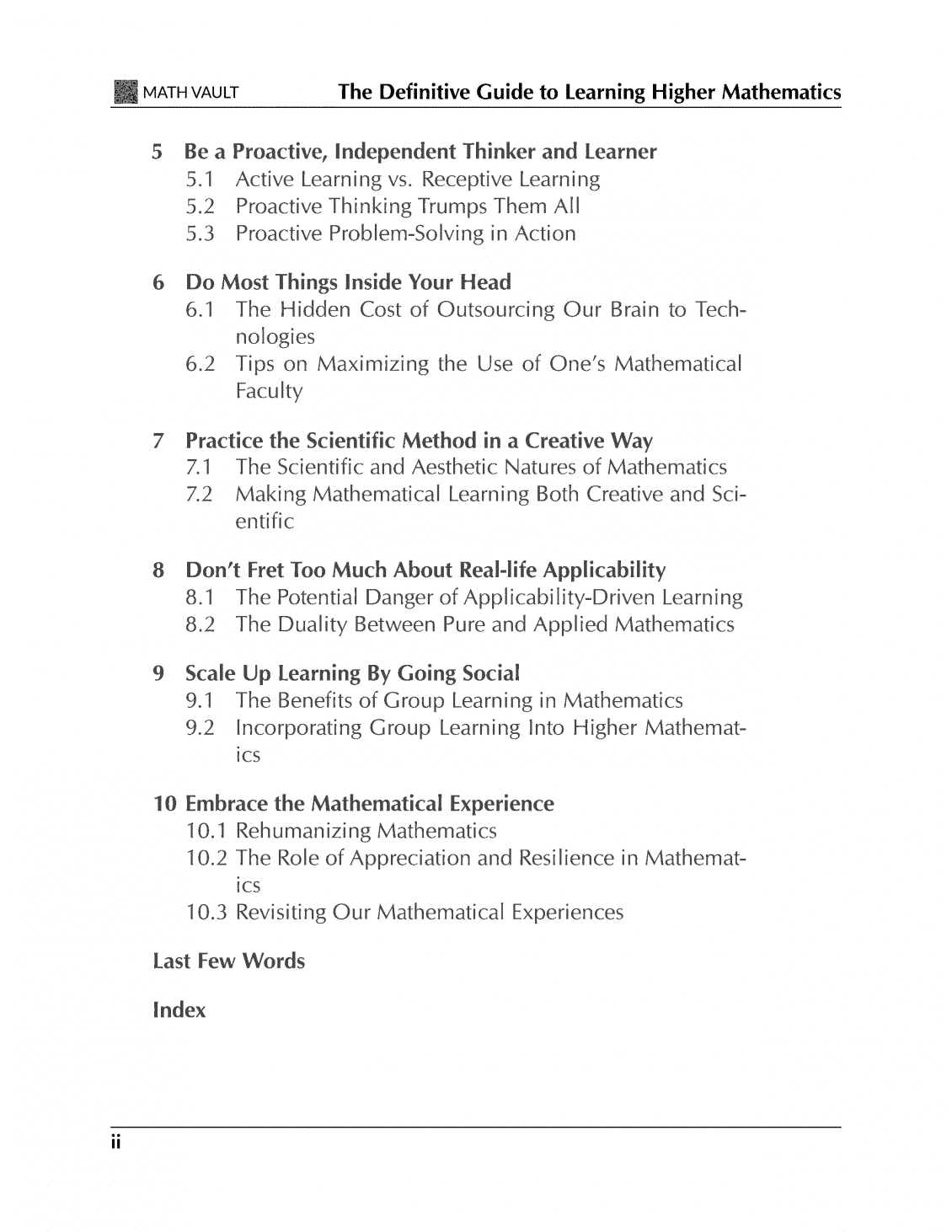
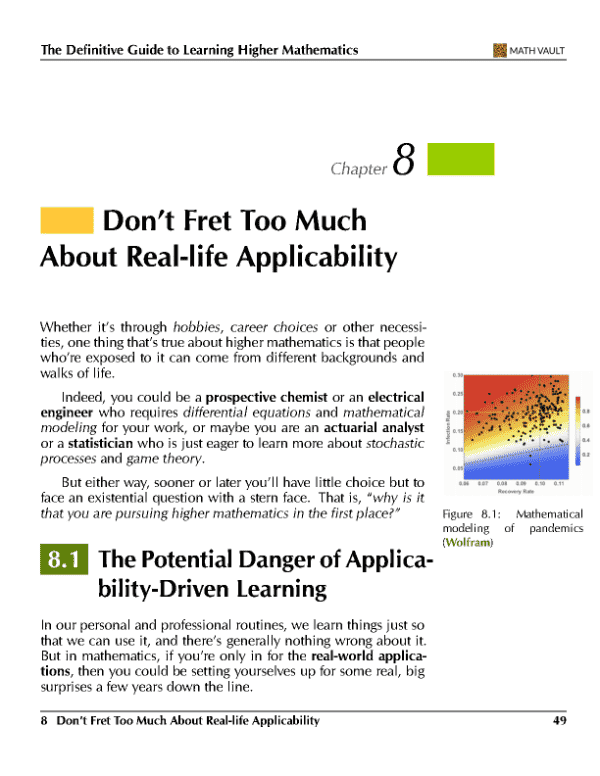
For example, for each chapter:
And while the guide is primarily structured to be non-technical, it also strikes a balance to include a wide range of examples from fields such as:
(to be sure, these are examples that could very well be covered either before or during the first year of a typical math undergraduate study.)
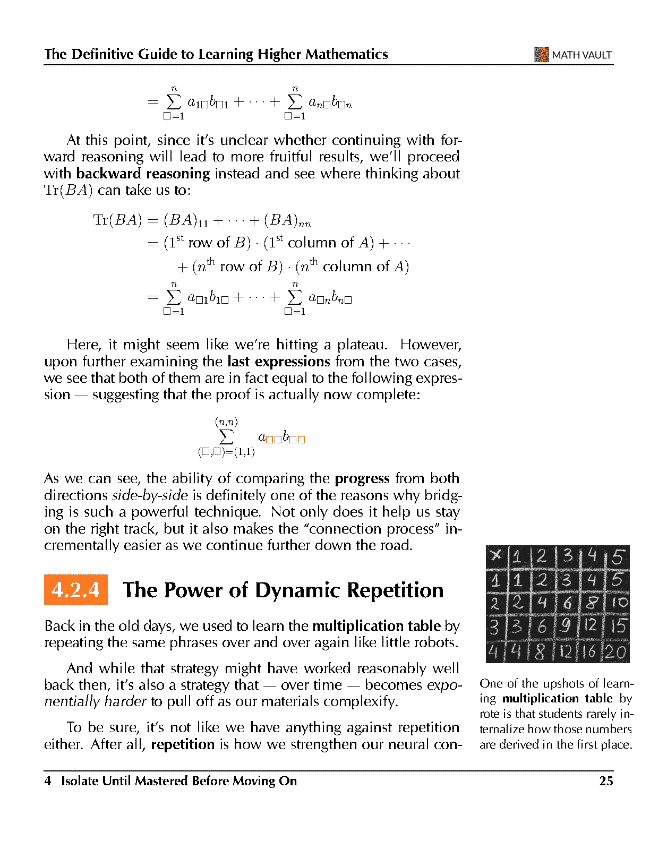
In fact, most of the ideas and concepts featured in the guide are research-backed,
yet framed in an entirely original way.
These include:
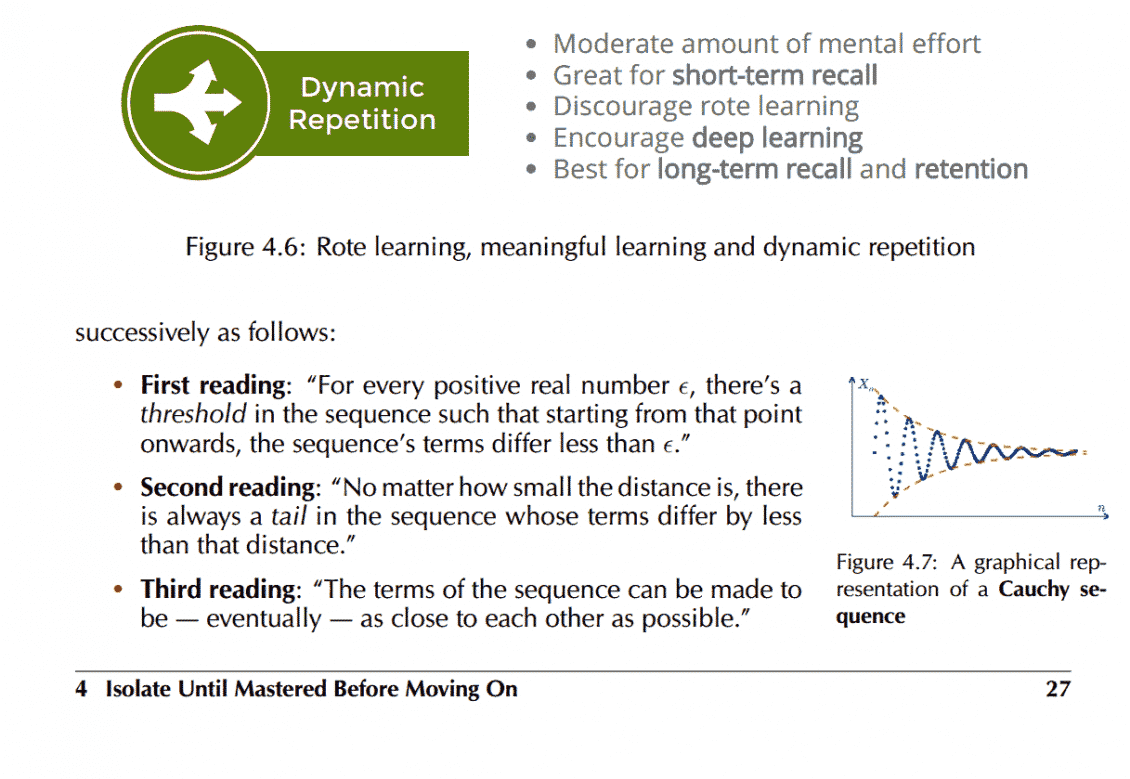
If anything, there's a chance that you might find some of the advice there counter-intuitive or shocking.
Heck, it might even change your conception of the role of a mathematical learner/educator in our society!
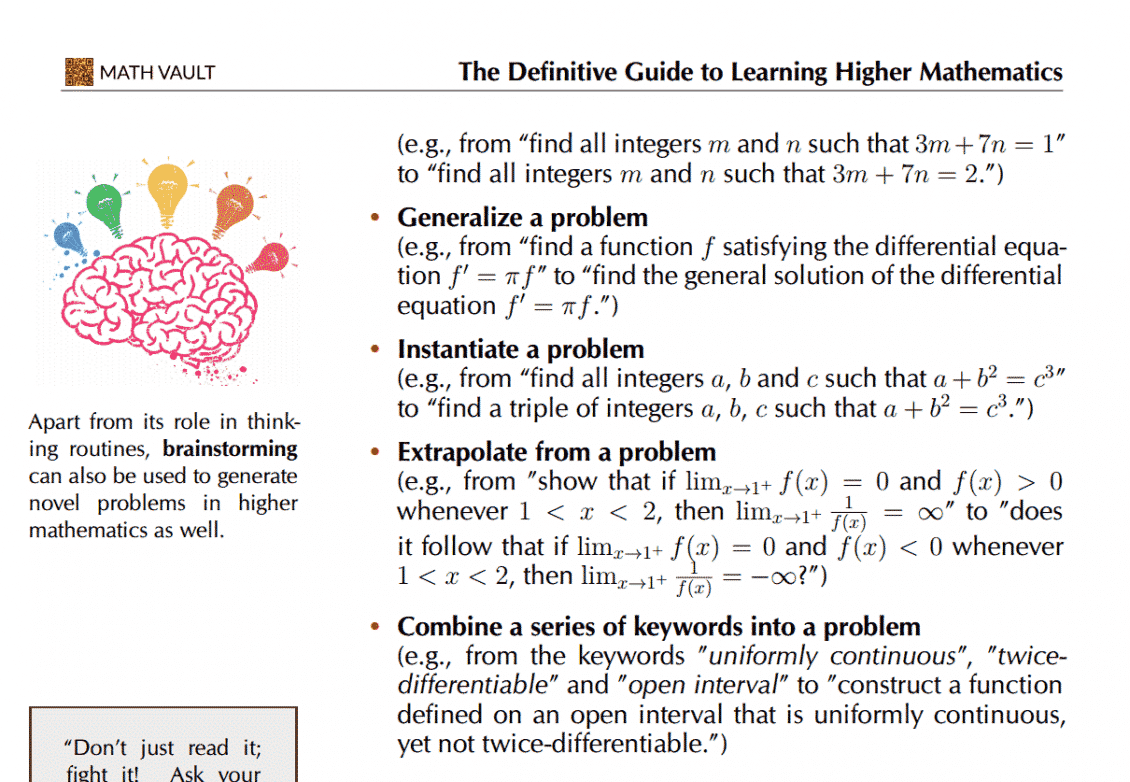
Along the way, we've also introduced a series of modules to make the guide more complete and insightful:
And some other notable features such as:
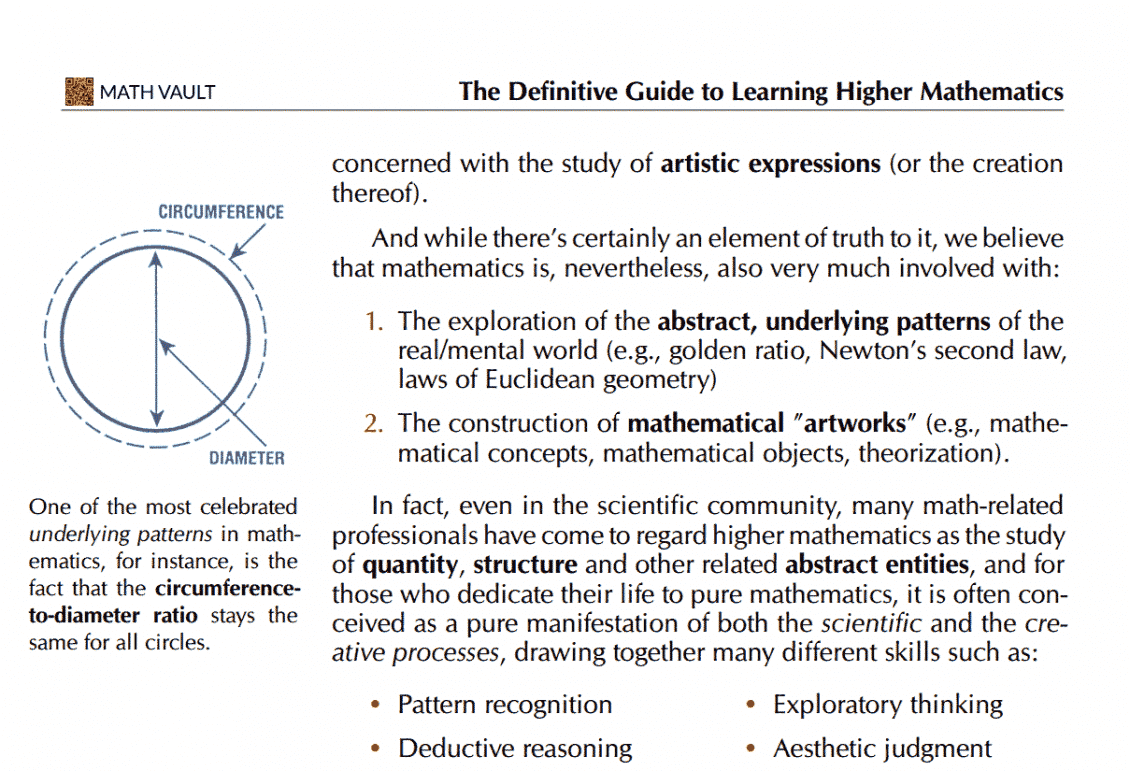
And of course. The overview wouldn't be complete without some memorable lines from the guide such as:
"Taking responsibility in choosing our own math materials is better than getting struck with resources which we don't find particularly useful."
In other words, if you're interested in:
then The Definitive Guide to Learning Higher Mathematics would be a good place to start your awakening!
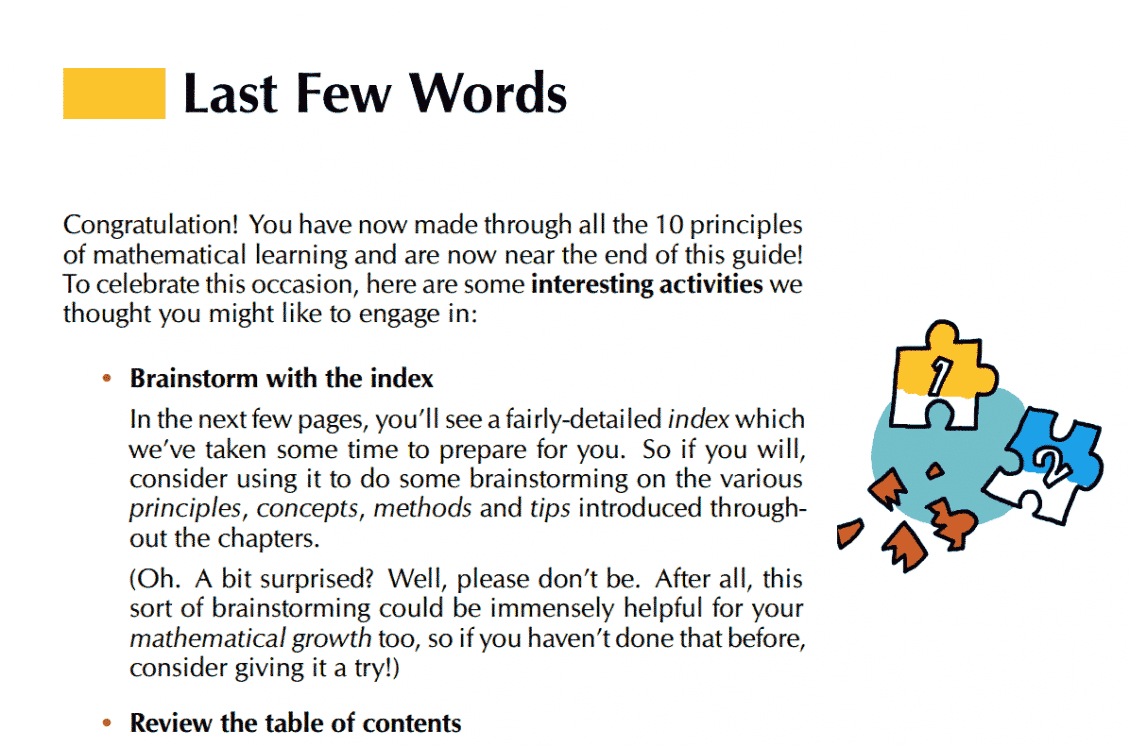
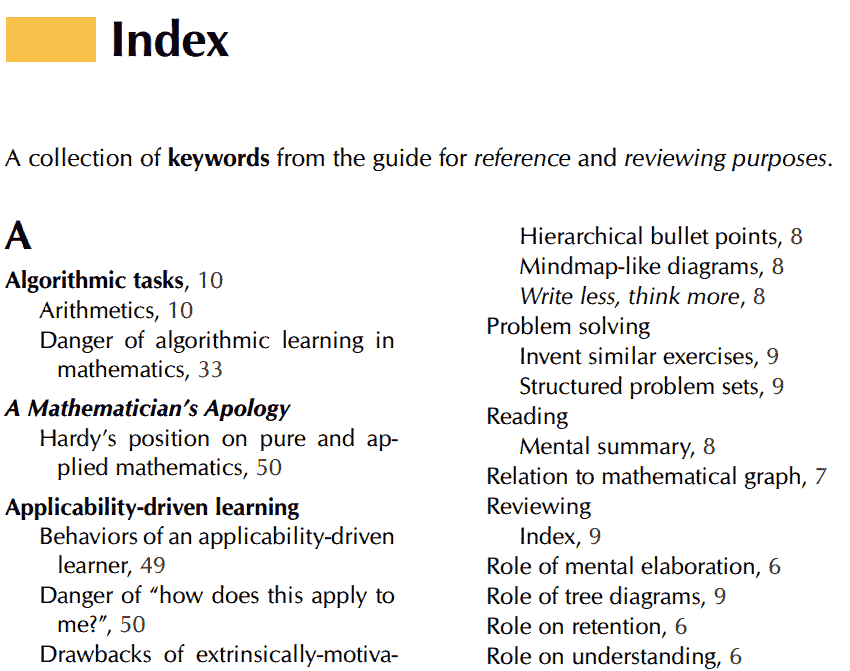
In fact, this is the guide we wished we've had — before even starting our journey in higher mathematics!
Alright. Time for some questions.
What are the pre-requisites for this guide — if any?
How self-sufficient / self-contained is The Definitive Guide to Learning Higher Mathematics?
How come this project took 5 months to complete?
How is this guide different from other math learning guides on the market?
Will this guide teach me to become a better problem solver?
Will this guide make me a better mathematical thinker?
Will this guide teach me any new mathematics?
Will this guide train me to become a better mathematician — amateur or professional-wise?
Get the most out of mathematics with The Definitive Guide to Learning Higher Mathematics today.


P.S. — Congratulations! Looks like you've just made it through the end of our presentation! For any question, just drop us a line at [email protected] and we would be more than happy to help you out!
